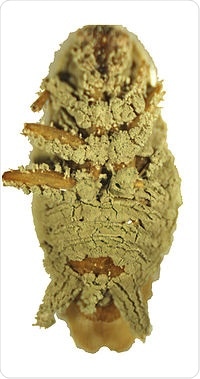A study carried out between the IRSS research institute in Burkina Faso in West Africa and the University of Maryland in the US discovered a fungus called Metarhizium pingshaense (Mp). This fungus was found to infect Anopheles mosquitoes, the genus of mosquito that is responsible for spreading malaria.
In 2017, the number of deaths caused by malaria reached 435,000. In the same year, there were approximately 219 million cases of malaria across 87 different countries. It is a life-threatening but preventable disease brought on by parasites spread to humans through bites of infected female Anopheles mosquitoes.
The aim of the study was to advance efforts to control the spread of malaria.
The trial was carried out in a contained, semi-field facility, as explained by the study, that was made up of six compartments in an area of Burkina Faso in which malaria is endemic.
Four of the six compartments contained experimental World Health Organization huts for West Africa, sugar sources for adult mosquitoes, and breeding sites.
The compartments were enclosed in a greenhouse frame covered in mosquito netting so the mosquitoes inside would be exposed to normal climate conditions to make a near-field accurate simulation.
Researchers enhanced the pingshaense fungus, with Professor Raymond St Leger, from the University of Maryland, telling BBC News that the fungus is “very malleable” and that “you can genetically engineer them very easily.”
They used a toxin found in the venom of an Australian funnel-web spider, and the genetic instructions needed to produce the toxin were added to the genetic code of the fungus. This would mean the fungus would produce the toxin itself once it was inside a mosquito.
“A spider uses its fangs to pierce the skin of insects and inject toxins, we replaced the fangs of the spider with Metarhizium,” Professor St Leger explained.
Preventing the spread of malaria
 The results of the study showed that approximately “75% of wild insecticide-resistant mosquitoes released into the environment became infected with the transgenic fungus, causing population collapse within 45 days.”
The results of the study showed that approximately “75% of wild insecticide-resistant mosquitoes released into the environment became infected with the transgenic fungus, causing population collapse within 45 days.”
Dr. Brian Lovett from the University of Maryland said the “transgenic fungus quickly collapsed the mosquito population in just two generations.”
Laboratory tested revealed that the genetically modified Mp fungus was “effective at very low spore doses” and “its efficacy lasted longer than that of the unmodified Materhizium.”
Professor Michael Bonsall from the University of Oxford spoke on the potential of this new discovery.
“This is a super-exciting study,” he said. “The prospects for controlling mosquitoes using this modified fungus are high.
“Proportionate bio-safety regulations are needed to ensure that the viability of this and other approaches for vector [mosquito] control using genetic methods are not lost through overly zealous restrictions.”
Our technology is not aiming to drive the extinction of mosquitoes; what we’re aiming to do is break malaria transmission in an area.”
Dr. Brian Lovett
1,500 mosquitoes were used at the beginning of the study. The population increased significantly before it was introduced to the Mp fungus enhanced with spider toxin. After this introduction, only 13 mosquitoes survived after a period of 45 days.
‘Encouraging’ results
Importantly, this fungus did not have lethal effects on important insect species including bees. As mosquitoes are becoming immune to insecticides, malaria cases are at risk of increasing and are already affecting 10 of the worst affected countries in Africa.
Dr. Tony Nolan from the Liverpool School of Tropical Medicine said that new tools were needed to control the spread of malaria through mosquitoes.
These results are encouraging. We need new and complementary tools to augment existing control methods, which are being affected by the development of insecticide-resistance.”
Dr. Tony Nolan
The study concludes by saying the results “suggest that the introduction of a single transgene under the control of a native fungal promoter substantially increases both the efficacy and the applicability of fungal entomopathogens for malaria vector control, justifying further development of transgenic entomopathogenic fungi for open field application.”
Source:
Lovett, B., et al. (2019). Transgenic Metarhizium rapidly kills mosquitoes in a malaria-endemic region of Burkina Faso. Science. DOI: 10.1126/science.aaw8737.